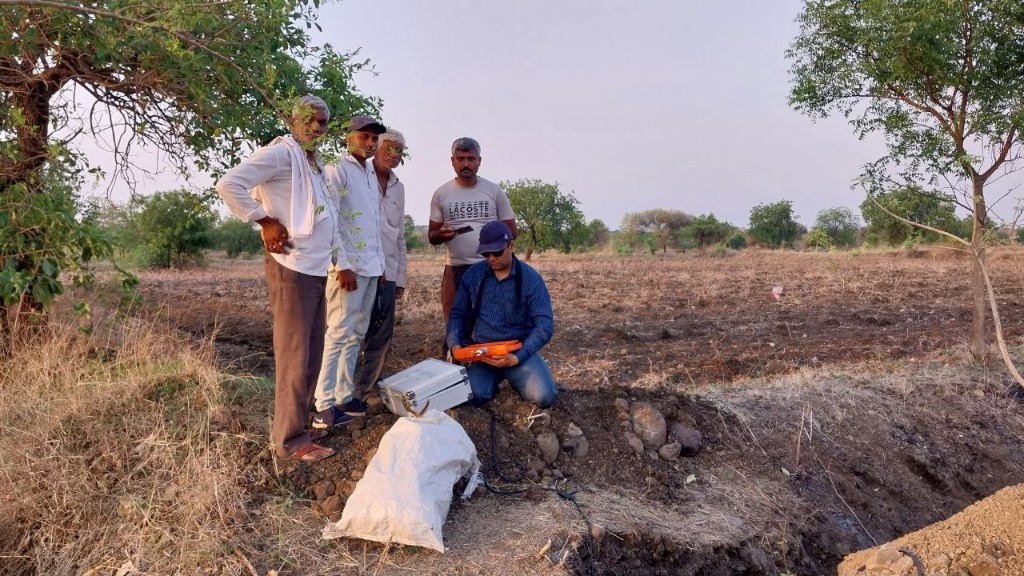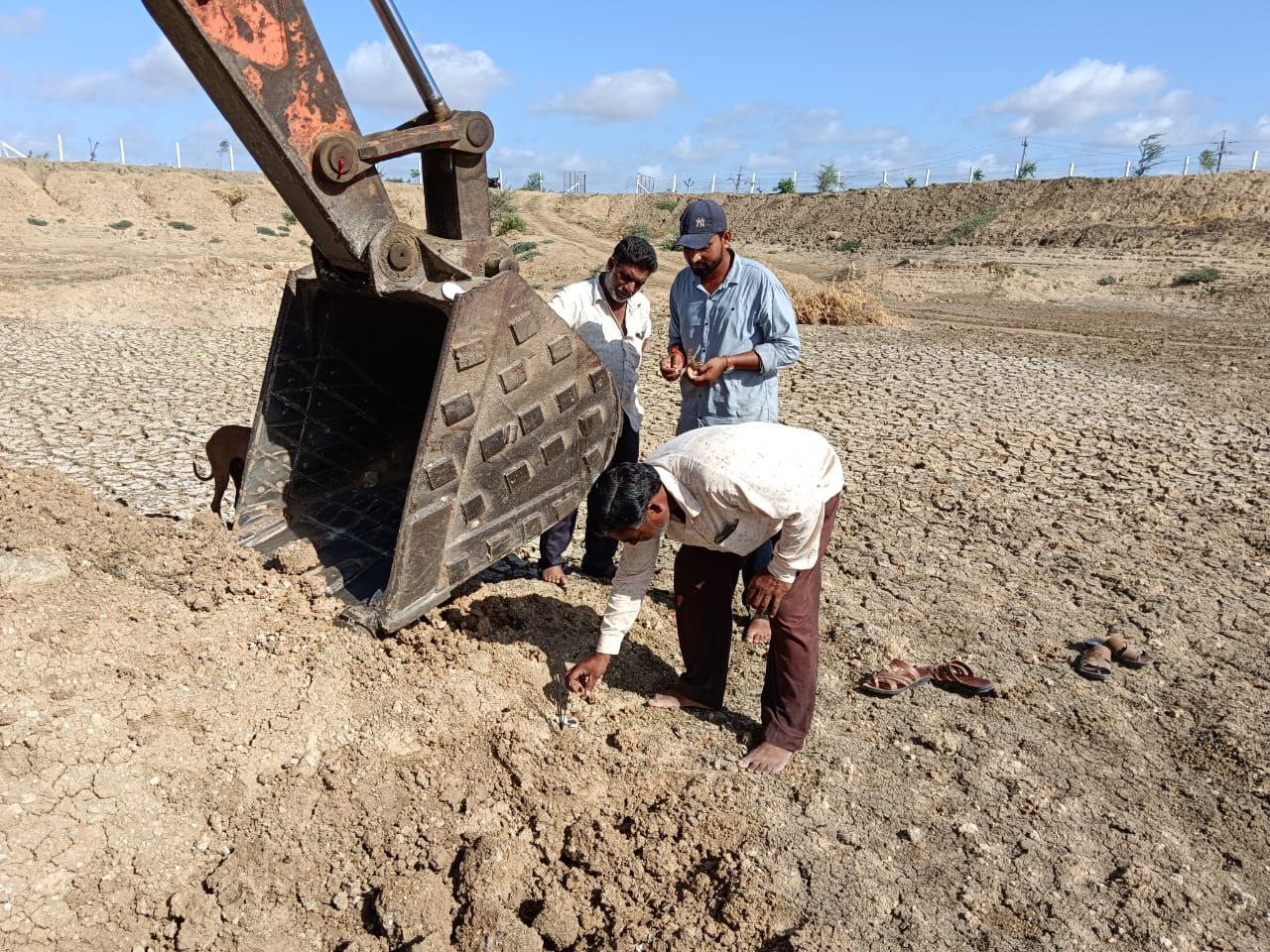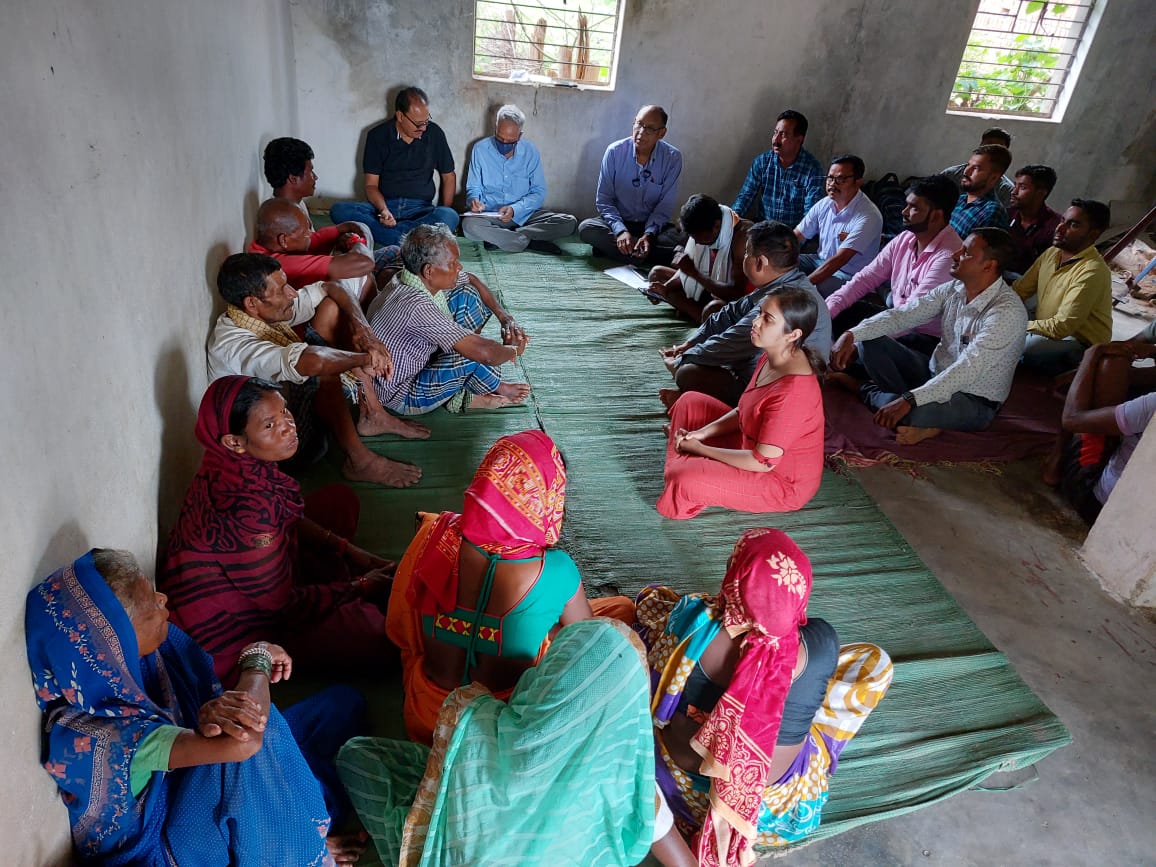USING SATELLITE TECHNOLOGY TO COMBAT WATER SCARCITY IN INDIA
2023 LOCAL ADAPTATION CHAMPIONS AWARD WINNER
In India, Aumsat Technologies LLP has innovatively harnessed satellite-based radar analytics to address the pressing issue of water scarcity exacerbated by climate change.
Riddhish Soni, Chief Executive Officer, utilized his experience on the Chandrayaan-2 lunar mission to develop Aumsat, a revolutionary device that can find pipeline leaks in 10-meter-thick concrete and pinpoint precious water sources 60 meters underground. Working to identify traces of water on the moon, it occurred to him that this cutting-edge technology could be applied to issues of water scarcity on Earth. In his home country of India, people in many drought-affected areas still rely on traditional but unreliable techniques like dowsing, where the movement of a twig or coconut is said to lead a person to water.
Crucially, Aumsat works remotely, which allows vast areas of land to be assessed quickly and easily. By both locating water sources and identifying leaks, Aumsat addresses two interrelated issues of water scarcity: locating water and conserving water. This means the water supply is continuous and efficiently used. As Soni explains, “Aumsat emerged as a beacon of hope, seamlessly bridging the marvels of space technology with pressing earthly concerns, illuminating a path toward a more hydrated and hopeful future for India.”

The business model is based on users paying a fee per hectare per year to access a web-based platform and analytical services that facilitate precision-farming and smart-resilient agriculture. Aumsat has an impressive accuracy rate of 90%, and as Soni explains, communities benefit from this technology through partnerships with local governments and non-governmental organizations (NGOs): “We collaborate to integrate our findings into urban planning and rural water resource management. The direct implication for residents is increased access to potable water and enhanced agricultural opportunities, thus building resilience against the unpredictable nature of climate change.”
The value of the technology was demonstrated through successful pilot projects and a series of information sessions in water-scarce areas, which led to the Aumsat team winning tenders with Indian ministries and collaborating with NGOs. Then, testimonials from satisfied clients created a ripple effect that has resulted in Aumsat’s current client base of nearly 4,000 diverse stakeholders. Irrigation department officers integrate the technology into regional and state-level water management plans, farmers optimize their water usage for sustainable agriculture, NGOs increase their impact in communities, and women – often the primary water managers in households – ensure water for domestic use is sustainably sourced and managed.
Jury Member and Danish Minister for Development Cooperation and Global Climate Policy Dan Jørgensen remarked that “this project is an excellent example of bringing advanced technology to work for the poor, addressing some of the consequences of climate changes like water scarcity.”

The project is currently operating in the drought-affected Indian states of Maharashtra, Madhya Pradesh, Chhattisgarh, and Telangana, focusing on the specific challenges and unique landscapes in each area. The project has also been replicated on an international scale in a diverse range of countries including Afghanistan, Uganda, and Mauritius. Andrew Mitchell, UK Minister of State (Development and Africa) in the Foreign, Commonwealth, and Development Office and a member of the Jury selecting this year’s winners, said: “Aumsat is using innovative technology to help communities address improved water security – one of the most pressing climate resilience issues of our time,” while Global Center on Adaptation CEO and fellow Jury Member Patrick Verkooijen praised this “extremely impressive use of technology with a practical solution.”
The Local Adaptation Champions Award prize money will be utilized to enhance satellite radar analytics and launch new innovative “hydro-social contracts” that aim to ensure equitable water distribution and prevent monopolization. Aumsat is also planning an expansion that will reach 5,000 clients through awareness campaigns, new partnerships, and the provision of cost-effective solutions.

The Business Adaptation Solutions category in this year’s Local Adaptation Champions Awards highlighted the work of small and large businesses that are expanding access to adaptation solutions or technologies that address local climate-related vulnerabilities. The number and quality of the applications received show how locally led efforts around the world are supporting leadership by local communities and governments in adaptation efforts and are helping to address structural inequalities, such as those faced by women, youth, and indigenous peoples.
The Local Adaptation Champions Awards reward inspiring and scalable locally led adaptation efforts to address the impacts of climate change and build resilience in the most vulnerable communities. Global Center on Adaptation, climate change experts, and a high-level jury selected one winner in each of the four categories for 2023: Capacity Building, Business Adaptation Solutions, Innovation in Devolving Finance, and Women in Leadership. Over 500 applications were received from individuals and organizations for this year’s Awards, and applications came in from all over the world.
The four winners were presented with their Awards at an awards ceremony at the COP28 climate summit, and each winning project will receive €15,000 and get an opportunity to attend the Adaptation Fund’s readiness events.
“As the climate crisis continues to escalate, these Awards shine a light on community-led local adaptation measures that can effectively build resilience at the grassroots,” Verkooijen said. “We are excited to follow the winners’ journeys over the next year and beyond as they utilize the Award prize money and Adaptation Fund sponsorship opportunities to develop and scale up their work.”